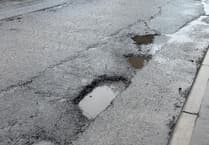PARENTS who work from home have been blamed for continued poor attendance at Welsh schools.
A top councillor previously responsible for education said parents who work from home for part of the week have been telling schools they see no reason why their children shouldn’t be able to do the same.
The Welsh Government issued new guidance on school attendance two years ago amid concern it hadn’t recovered following the 2020 Covid lockdowns that saw school closures extended into 2021. It also changed its definition of “persistent absence” from a child missing more than 20 per cent of half day school sessions, or 10 full school days, to the figure used in England of 10 per cent or just five school days.
Councillor Martyn Groucutt, who previously had responsibility for education in Monmouthshire, said school attendance hasn’t recovered since the pandemic when lockdown meant most pupils were told to stay at home and follow online learning.
Speaking at a county council scrutiny meeting, discussing a well-being plan, Cllr Groucutt said: “There is an elephant in the room. Since the pandemic too many families have stopped sending their children to school regularly.”
He added: “Attendance has still not caught up to attendance we were used to over time. Parents are contacting schools and saying ‘I work from home three days a week, why can’t my children do the same?’ It doesn’t work like that.”
The retired former headteacher and education officer said friends of his have home educated their children, which he described as “very far from easy thing to do” but said attending school is the most suitable form of education for the majority of children.
He said: “I’m not saying home education should never happen but the vast, vast majority of children need to be with their friends, peers and community learning.”
The Abergavenny Labour councillor, who stepped down as Monmouthshire County Council’s cabinet member for education in May, said he’d last week become chair of governors at Cross Ash Primary School and reported attendance for youngsters in the reception class for the first month of the new term that started in September was “about 98 per cent”.
He said: “I just hope they realise it’s not just a month it goes on until they are 18-years-old.”
Compulsory schooling in Wales ends at 16 years of age.
The annual report from Monmouthshire County Council’s director of education, for 2024/25, stated “overall attendance of pupils in Monmouthshire schools, post-pandemic, has improved” with primary school attendance “moving rapidly towards pre-pandemic levels” but described attendance in secondary schools as “slower to recover”.
Figures show overall attendance in Monmouthshire increased to 90 per cent in 2023/24 which was one per cent higher than the all-Wales figure though both had improved by 0.5 per cent on the previous year.
Attendance for Monmouthshire primary pupils was 93.60 per cent, compared to 92.20 per cent across Wales, while attendance for secondary school pupils was 88.20 per cent and the all-Wales figure 88.10 per cent.
The Welsh Government has said “good attendance” is usually at around 95 per cent.
It has said the percentage of secondary school-aged pupils missing more than 10 per cent of sessions, five whole days, fell from 37.1 per cent to 33.0 per cent between 2023/24 and 2024/25.
.jpeg?width=455)




Comments
This article has no comments yet. Be the first to leave a comment.